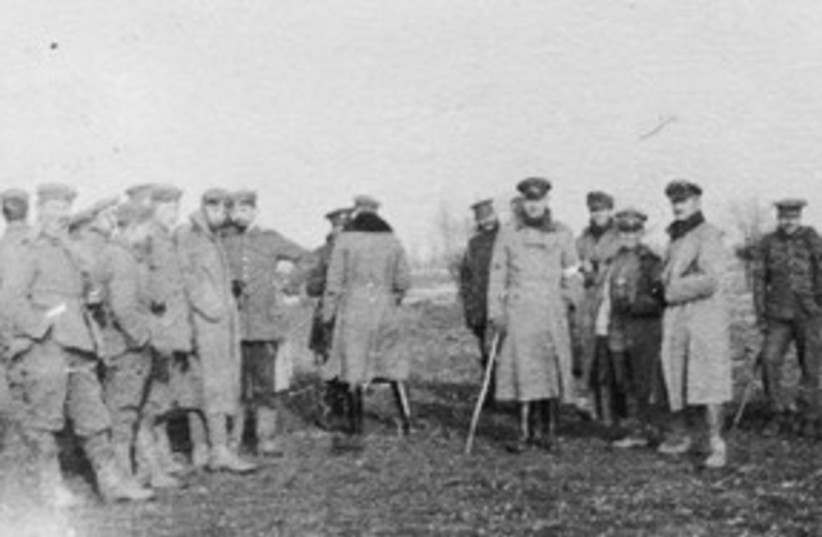On December 24, 1914, World War I was put on hold at various battlefields around Europe, and warring sides came together in what would later come to be known as the Christmas Truce.
Accounts from soldiers in the trenches tell stories of both sides singing Christmas carols and sharing booze, biscuits and cigarettes.
"Away across the field, among the dark shadows beyond, I could hear the murmur of voices," wrote a British machine gunner, Bruce Bairnsfather.
Bairnsfather and his fellow soldiers realized that the voices were the Germans singing in honor of Christmas Eve. They then heard a German shouting at them to come out of the trenches. The two sides met in No Man's Land and shook hands.
Another element of the truce was that each side allowed the other to collect their dead, which would have been impossible during actual combat. A soldier's letter that was published in The Irish Times a month later described the scene as "a large crowd of officers and men, English and German, grouped around the bodies which had been gathered together and laid out in a row."

Similar scenes occurred at other battlefields too with reports from some describing games of soccer and holiday parties. These mini truces were a short reprieve for the soldiers who had already been fighting a war that they had expected to end quickly for six months.
"We did not fire that day, and everything was so quiet it seemed a dream," wrote J. Reading in a letter to his wife.
Not everyone was happy about the truce. Higher-ranking officers were horrified and by some accounts, punished their soldiers for fraternization.
The war continued as soon as Christmas was over, although some accounts suggest that in some places, it continued a few more days. For the next four years that the war lasted, there was never again a Christmas truce, making the events of 1914 unique and perhaps miraculous.
